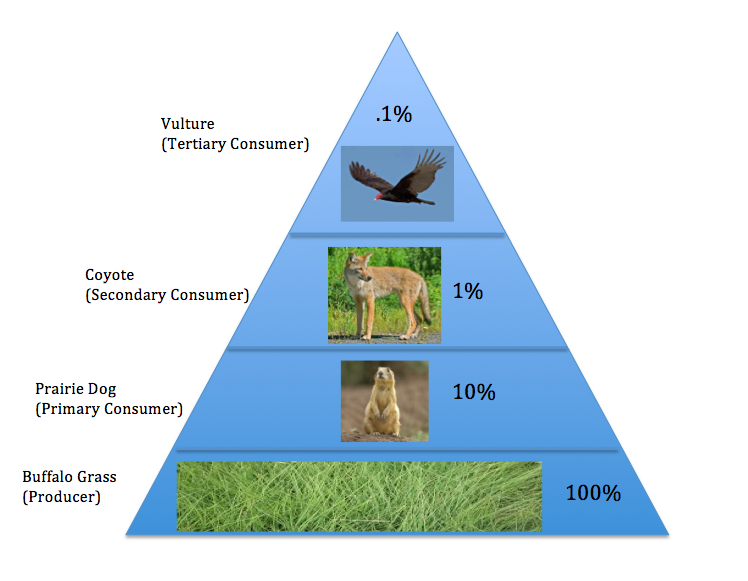What do producers make using sunlight?
Food (Glucose/Sugar)
What do consumers eat?
Plants or other animals
What do decomposers break down?
What is dead plants and animals?
What is an ecosystem?
A community of living and non-living things that interact with each other.
What is the main source of energy for almost all ecosystems?
What is the Sun?
What process do producers use to create their own food?
Photosynthesis
What type of consumer eats only plants?
What is a herbivore?
Name one decomposer.
What is a mushroom, worm, or bacteria?
What is the term for the non-living parts of an ecosystem?
What are abiotic factors?
What shows how energy flows from one organism to another?
What is a food chain?
Give one example of a producer found in a pond ecosystem.
Algae, Lilypad, Cattails
What type of consumer eats both plants and animals?
What is an omnivore?
Why are decomposers important?
They recycle nutrients back into the ecosystem.
Give an example of an abiotic factor.
Water, sunlight, temperature, or soil.
What is a more complex version of a food chain?

What is a food web?
Why are producers important in an ecosystem?
They provide the base of the food chain by making energy available to other organisms.
What type of consumer eats only other animals?
What is a carnivore?
What would happen if decomposers disappeared?
Waste and dead matter would build up, and nutrients wouldn’t be recycled.
What is the term for the living parts of an ecosystem?
What are biotic factors?
In a food chain, who gets energy directly from the sun?
What is the producer?
What gas do producers release during photosynthesis?
What is oxygen?
Name a top predator in a forest ecosystem.
Wolf, hawk, or bear, etc.
What do decomposers release into the soil that plants need?
What are nutrients or minerals?
What is a habitat?
The natural home or environment of an organism.
What happens to the amount of energy as you move up the trophic levels?
It decreases (only about 10% is passed on).
Name two producers found in a forest ecosystem.
Trees, shrubs, moss, or ferns.
What do we call an animal that is hunted?
Prey
Where do decomposers fit in the food chain?
At the end — they break down everything else.
How do humans impact ecosystems?
Deforestation, pollution, habitat loss, etc.

What is an energy pyramid
What would happen to consumers if there were no producers?
They would have no food or energy source.
What type of consumer hunts other animals?
Predator
What kind of environment do decomposers thrive in?
Warm, moist environments.
Name the 6 examples of ecosystems.
Tundra, Desert, Forest, Rainforest, Ocean, Grassland
What are the four levels of the energy pyramid?
Producer, Primary Consumer, Secondary Consumer and Tertiary Consumer